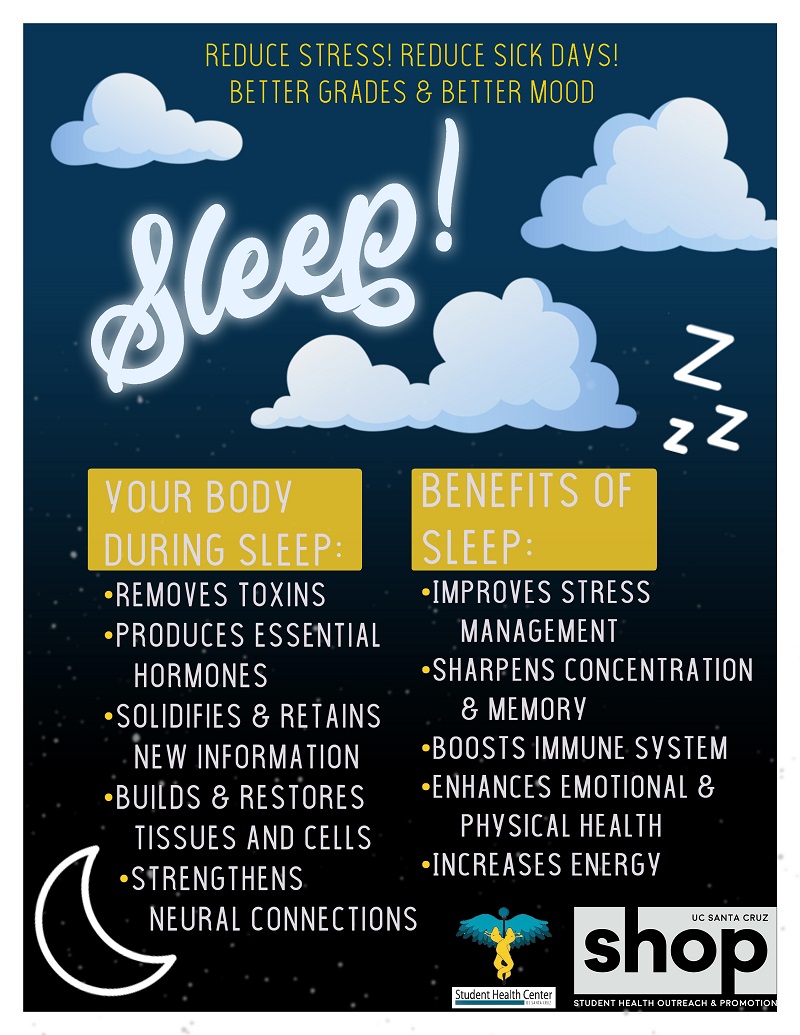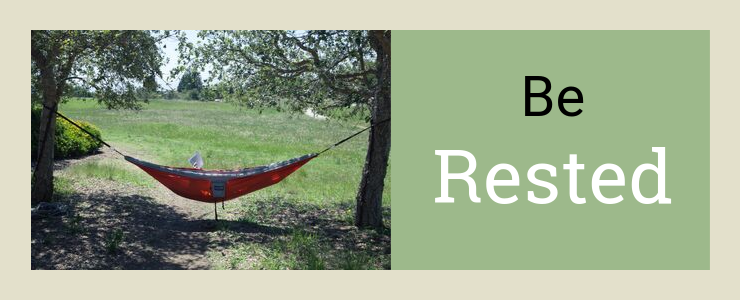Be Rested
What is Sleep Hygiene?
Sleep Hygiene is defined as behaviors you can do to help promote good sleep using behavioral interventions and environmental strategies. For many people, sleep and sleep duration improves when sleep strategies are implemented. It is currently recommended that adults strive for 7- 9 hours of sleep per night.Why is Good Sleep so Important?
Research has confirmed that sleep directly impacts our health. Insufficient sleep is linked to many health issues such as diabetes, obesity, heart disease and mood disorders to name a few. Sleep is essential to our immune system and to all of our systems in the body to be able to regroup every 24 hours. Harvard Medical School explains, "Treating sleep as a priority, rather than a luxury, may be an important step in preventing a number of chronic medical conditions."
How to Improve Sleep Hygiene
UCSC SHOP outlines an action plan for better sleep.

Sleep and Electronics- Blue Light (It's a problem!)
- Electronics emit a particular type of blue light that is capable of triggering the brain to stop making melatonin.
- Melatonin and other sleep hormones are crucial to restful restorative sleep.
- Try to put away electronics 30- 60 minutes before bedtime to aide you in falling asleep and having a restful slumber.
Why is it so important to have some space between screen time and sleep?
The reason blue light (emitted from our electronics) negatively impacts us is purely biological. Sleep is a part of the circadian rhythm, the cycle of biological processes that’s determined in part by the amount of light and dark to which our bodies are exposed.
In the most natural setting, which is one where we’re only exposed to sunlight, our retinas sense when the sun is going down and the environment is getting darker. That induces our hypothalamus to tell the body to produce melatonin and other sleep hormones and to reduce our body temperature.
When we use artificial lighting to extend our day, however, our bodies get confused and the various sleep signals are disrupted. The blue light exposure can delay the onset of REM sleep and lead to restless sleep and morning drowsiness.
Learn more about the trouble with watching TV or using tablets before bed.
Technology Resources for Sleep Hygiene
Apps
- Calm Meditation and Sleep
- Sleep cycle alarm clock (wake peacefully)
YouTube Resources
UCSC CAPS Audio Recordings
- Autogenics (Relaxation Techniques) (8.75 min
- Progressive Muscle Relaxation (12 min)
- Autogenics (Relaxation Techniques) (8.5 min)
- Progressive Muscle Relaxation (12 min)
Additional Resources for Improved Sleep Hygiene
- Help Guide (comprehensive resources on sleep, sleep issues and tools to improve sleep)
- Bedtime stories for grownups (sleep aide)
- Energy Release Visualization for Sleep
- UCSC CAPS shares sleep tips in the CAPS Self-Help library

